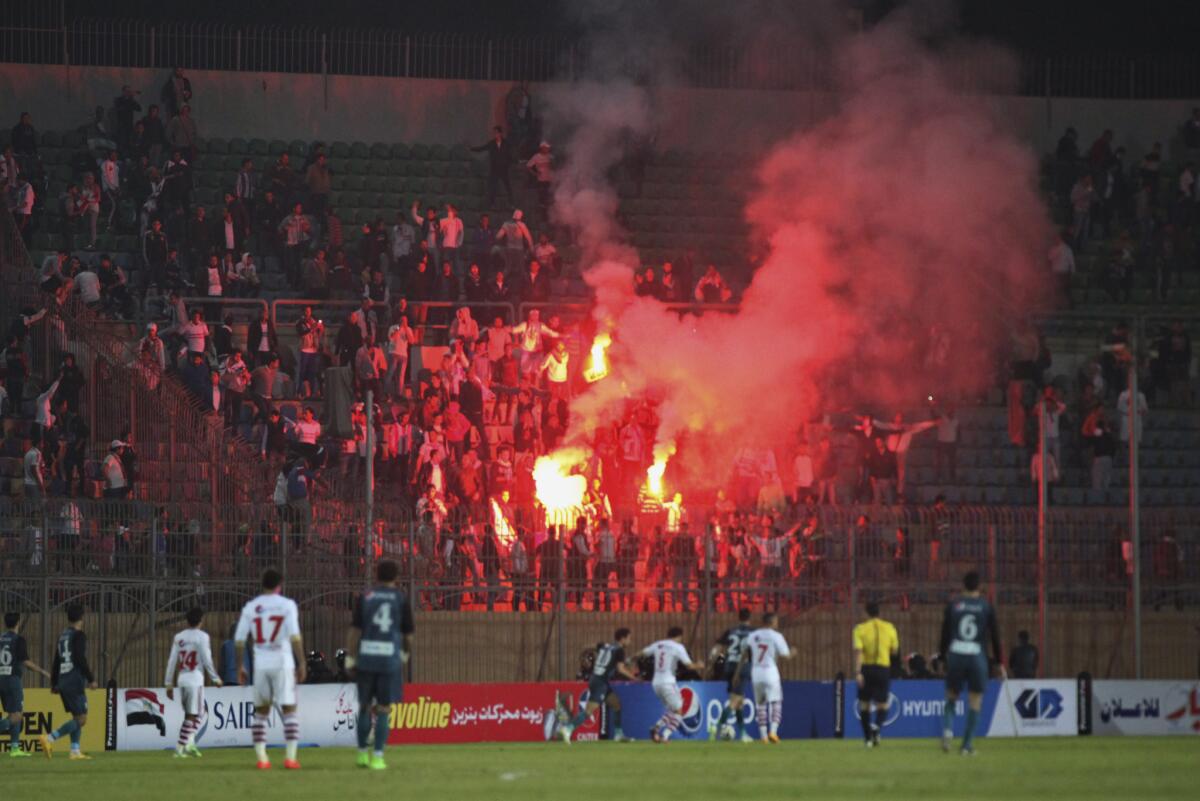Egypt soccer riot leaves at least 22 dead

- Share via
Reporting from Cairo — In an eerie replay of even more lethal violence three years ago, an outbreak of soccer-related fighting Sunday evening left at least 22 people dead outside a stadium near the Egyptian capital, authorities said, with the toll expected to rise.
Though the violence was not overtly political, the circumstances surrounding it –- apparently a combinaton of a stampede and a clash with police -- had political overtones in a country where sport and politics have traditionally been entwined to occasional deadly effect.
Sunday’s violence was reminiscent of a deadly 2012 outburst in the city of Port Said, when at least 74 people were killed. That was the country’s most lethal soccer-related incident.
In this episode, fans of one soccer club, Zamalek, alleged that authorities had opened only one congested gate to allow them to enter the stadium, leading to a large-scale melee, the Associated Press reported, citing accounts on Facebook. The prosecutor’s office reported 22 dead, but the state-run Ahram website cited medical sources as putting the number of deaths at 30.
Soccer fans known as Ultras are known to frequently clash with police in and near match venues, and have a tense relationship with security forces. Soccer-related violence took on a strongly political character in 2011 during the uprising that ousted longtime dictator Hosni Mubarak.
The Ultras are regarded as better organized and better able to mobilze support than most Egyptian political parties -– particularly after the Muslim Brotherhood, an Islamist group that was once the country’s largest opposition movement, was outlawed in 2013. In the wake of the banning of the Brotherhood, soccer fans have been viewed as one of the largest political blocs.
Tarek is a special correspondent. Times staff writer Laura King in Cairo contributed to this report.
More to Read
Sign up for Essential California
The most important California stories and recommendations in your inbox every morning.
You may occasionally receive promotional content from the Los Angeles Times.










